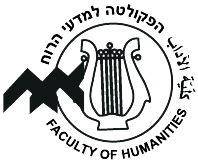The one-year program is taught in English over the course of three consecutive semesters from October until September. Students wishing to pursue the thesis track will need to submit a research thesis within one year of completing their coursework. Each student can choose to specialize in one of many relevant topics, such as lithics, faunal, geological and palynological studies. Students can benefit from a rich variety of courses focusing on prehistoric studies, as well as on a range of additional key topics including environmental archaeology, archaeological methodology and theory and the archaeology of the southern Levant. The program is divided into two tracks:
Track A involves the preparation of a research thesis and consists of 36 credits, including core courses, elective courses and field days. Supervision and personalized tutorials will be provided to students pursuing the thesis track. A thesis, which is normally completed in the year following the completion of coursework, is required for students advancing to doctoral studies in Israel. A thesis is an independent research project, and the pace of progress depends largely on the student’s efforts. Students who complete their thesis later than one semester after the completion of their coursework may be expected to pay an additional fee as detailed by the Graduate Studies Authority.
Track B consists of 36 Israeli credits (without a thesis) and includes core courses, elective courses, field days and a final written exam.
Upon completion of the program, students will be awarded a Masters of Arts in Archaeology from the Faculty of Humanities and the Department of Archaeology.

